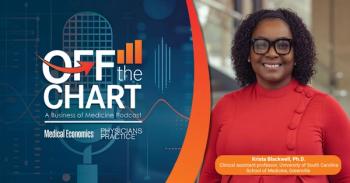
'The Quiet Revolution': A Physician's Reaction
This fascinating documentary, about improving care while saving money, can teach physicians - and America - a great deal.
Editor's Note:
As I watched Rx: The Quiet Revolution, an excellent PBS program, I could see several truths emerging. The documentary began with one solo physician in Maine, who was dedicated and trying to spend quality time with patients to encourage them to adopt healthier lifestyles and take better care of themselves. He represented the best of traditional healthcare delivery. Yet the Mississippi delta diabetes telemonitoring project and the developing system of interlocked healthcare in rural Alaska that were also featured in the program were reaching more patients in a much more robust manner than the solo physician.
The documentary took us to Belfast, Maine, where we watched an extremely morbidly obese patient lumber painfully to a chair and sit heavily. The solo physician encouraged her repetitively to "get up and walk" to be healthier, and her husband with neglected diabetes to "eat better." "We're not rabbits," replied the wife.
It's going to take a village to help this couple.
As I watched the doctor also taking house calls on a motorbike, and counseling recovering addicts on suboxone, I could see that in remote Maine, this physician needed to play many roles and was the closest thing to Marcus Welby, MD, imaginable.
Is he at risk for burnout? Absolutely.
Well-meaning physicians are not going to be able to get the job done acting alone. Teamwork is the answer to future care in America. Personalized connection, motivational interviewing, and high-touch care are critically important for engagement, but there aren't enough hours in the day for the physician to "do it all."
The Mississippi experience using in-home telemedicine monitoring, also featured in the documentary, seemed more able to effect change. Responding quickly to blood sugar values enabled a practitioner to adjust regimens on the fly and to show patients at home that someone cared about them.
Instead of the motorbike in Maine, why not an Internet connection? (Unless the motorbike represents protected time for renewal and relaxation.)
In Alaska, the documentary featured a native population that was migrating from being passive recipients of primarily emergency room care to being more active participant-owners in their care using health coordinators and locally-based practitioners.
That experience was also enlightening and is also moving the needle in the right direction. Creating tribal pride and reinvigorating customs and rituals discarded under the Bureau of Indian Affairs is slowly restoring self-worth and caring, necessary for healthy lifestyle changes.
As an internist/geriatrician, I thought the On Lok home in San Francisco shown in the documentary provided one of the best alternatives to a nursing home I have seen.
We are struggling with increasing numbers of demented elders at Kendal at Oberlin, the retirement community where I am medical director. Currently, we have an open concept, with independent cottage dwellers walking through the nursing home corridors to get to dinner and the main building. With wandering demented residents, this is no longer safe or ideal. We are thinking about a "Green House" concept with a central living room/kitchen/dining room and surrounding bedrooms, so that the residents have privacy but feel that they are living in a home with chores and shared work.
Atul Gawande compellingly writes in his book "Being Mortal," no one wants to go into a nursing home. We need innovative alternatives so that when you and I are old and frail, we won't have to go into one
Hey America, start innovating!
Newsletter
Optimize your practice with the Physicians Practice newsletter, offering management pearls, leadership tips, and business strategies tailored for practice administrators and physicians of any specialty.









